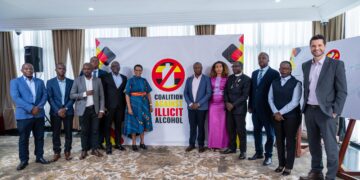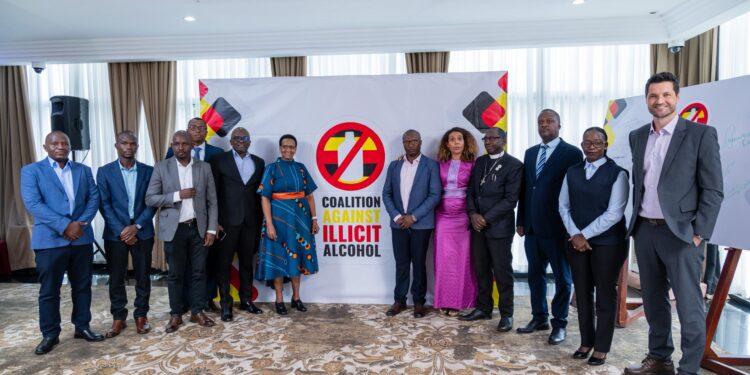A new white paper released by the Coalition Against Illicit Alcohol Uganda (CAIA-UG) in partnership with the Arrow Empirical Research Institute has lifted the lid on a deepening public health crisis in Uganda.
The report, titled “Public Health Implications of the Harmful Consumption of Illicit Alcohol in Uganda,” provides damning evidence of the widespread consumption, toxic composition, and devastating societal impact of unregulated alcohol.
According to the findings, 65% of all alcohol consumed in Uganda is illicit, with 83% of patrons admitting to having consumed it within the week of being surveyed. The study, which combined fieldwork and laboratory analyses in Kampala and Arua, uncovered that many samples tested had alcohol content exceeding 44.2% ABV, and methanol levels as high as 640.59 mg/L — far beyond safe limits.
“This is not just a public health crisis, it is a human rights issue,” declared Prof. Myriam Sidibe, Co-Chair of CAIA-UG. “We are losing generations of Ugandans to unregulated alcohol produced under unsafe and unsanitary conditions. This white paper is a call to arms for all sectors, from Parliament to the pulpit, to take coordinated action.”
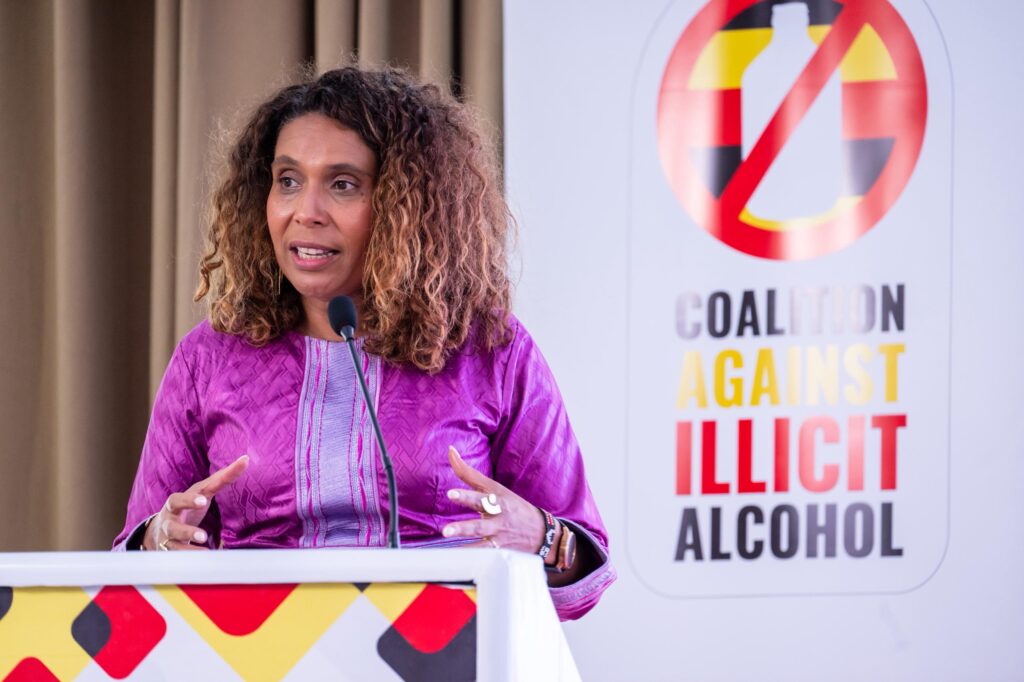
The study highlights grave health consequences linked to prolonged consumption: increased hospitalisations, mental health deterioration, liver cirrhosis, and oesophageal cancer among men over 25. Notably, 13% of drinkers show signs of dependency, and 4 in 10 drink daily, with 42% of women surveyed confirming daily use — a sign that the crisis cuts across gender lines.
Production and retail environments are equally disturbing. In both Kampala and Arua, researchers found dirty brewing sites, unsafe water, and contaminated retail outlets, exposing consumers to potentially lethal substances. Many of these beverages are sold in plastic bottles for as low as UGX 1,000, with some drinkers reportedly consuming up to 3.4 litres in a single sitting.
“This isn’t just about laws, it’s about livelihoods,” noted Dr Kennedy Niwagaba, Lead Researcher at Arrow Empirical Research and Skills Enhancement, Makerere University. “We cannot regulate with one hand and ignore livelihoods with the other. Real solutions must pair enforcement with dignity through economic alternatives and community support,” added Dr Niwagaba Niwagaba, a study contributor.

One of the report’s most disturbing revelations is the prevalence of underage drinking. Despite national regulations, 19% of producers admitted to selling alcohol to minors, and 39% of respondents said they started drinking before age 18. This starkly contradicts existing legal frameworks and highlights weak enforcement.
At the national launch event, Fred Muwema, Chairman of the Anti-Counterfeit Network Africa, signed the national pledge board alongside other campaigners to demonstrate a united front. “We are all connected to a Boda Boda — when we send them to run our errands or more,” he said. “This is more than policy — it’s a movement.”
The report also underscores the economic drivers of illicit alcohol consumption. Poverty, unemployment, peer pressure, and stress have made these cheap, easily accessible brews a coping mechanism, particularly for youth and low-income earners. 58% of daily drinkers are men, but the growing rate among women and youth signals a broadening crisis.
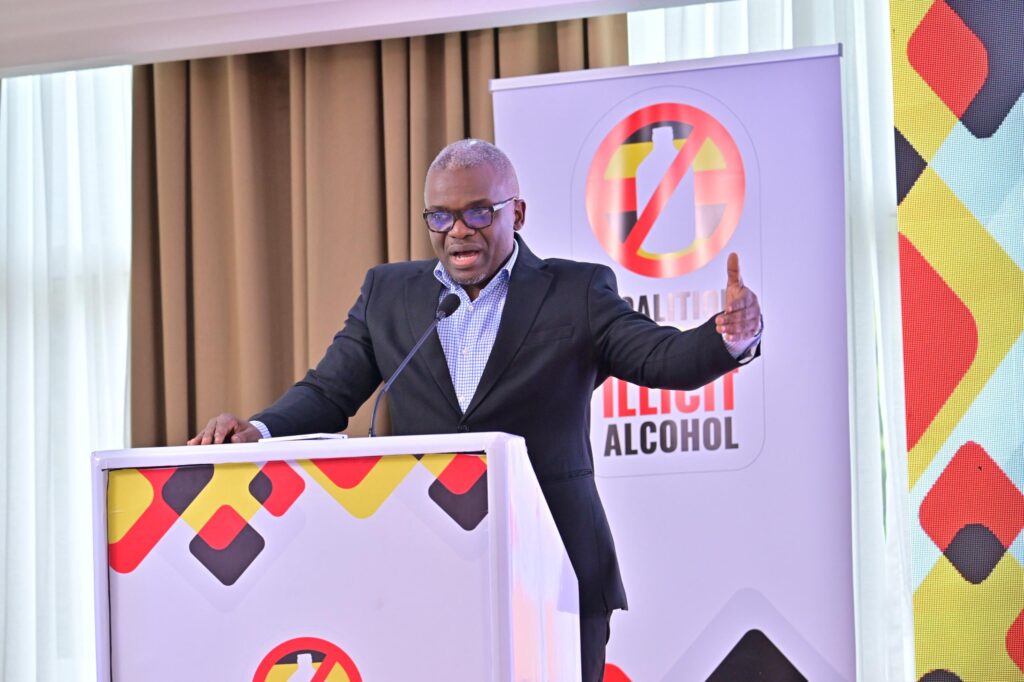
Key statistics from the report include: 83% of drinkers consume illicit alcohol, 63% of men and 44% of youth (18–34) drink illicit alcohol, average consumption per session: 0.74 litres for spirits, 3.61 litres for opaque beer, 14% of drinkers required hospitalization, 37% reported conflicts with family and friends and 39% began drinking before the age of 18.
The white paper calls for a multi-sectoral response, urging government, religious institutions, civil society, and local communities to rally behind the cause.
Among the proposed solutions are: strict enforcement of alcohol laws, public awareness campaigns, economic alternatives for producers and retailers, youth-targeted education programmes and skills development and livelihood transformation.
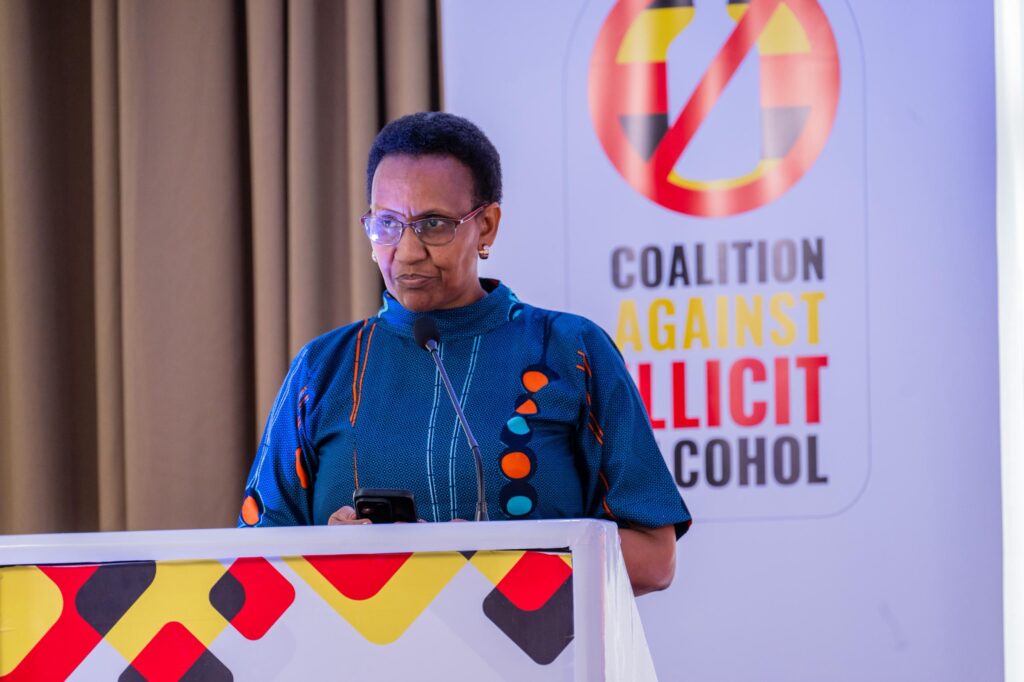
“This white paper serves as both a mirror and a warning,” reads the White Paper’s conclusion. “Uganda must act decisively to dismantle the conditions that sustain the illicit alcohol trade. We need a whole-of-society approach — from regulation to rehabilitation — if we are to protect our future.”
